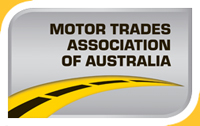Lack of Consultation on FBT Changes is Worrying Given Forthcoming Federal Election
- Details
- Published: Tuesday, 16 July 2013 23:18
The Australian Motor Industry Federation (AMIF) and its Members, are disappointed by today’s announcement that the rules concerning the calculation of Fringe Benefit Tax on applicable vehicles, is to be changed without any consultation with industry, or with regards for the impact of this change.
“It is a disgrace that the Rudd Government has elected not to consult the Australian automotive industry before making its decision to make significant changes to the FBT rules” said Mr Richard Dudley.
“Had the industry been consulted, we could have provided input into alternative FBT arrangements that would have assisted the Government in achieving its objectives towards the ETS, while supporting the domestic automotive industry and continuing to provide surety to small business operators.”
Instead we are left with another policy-on-the-run announcement that provides little detail in terms of the new arrangement’s and the added insult of an immediate extra burden upon consumers and that also increases the compliance burden upon small business.” He concluded.
It is for these reasons that AMIF announced during its recent National Press Club address, that urgent government engagement in the form of a Green Paper, was required to ensure that a cohesive and coordinate response to automotive industry issues and policy can be developed.
In this vein, AMIF is supportive of comments made by the Federal Chamber of Automotive Industries.
For further comment, please contact Mr Richard Dudley, CEO on 0412 146 82


